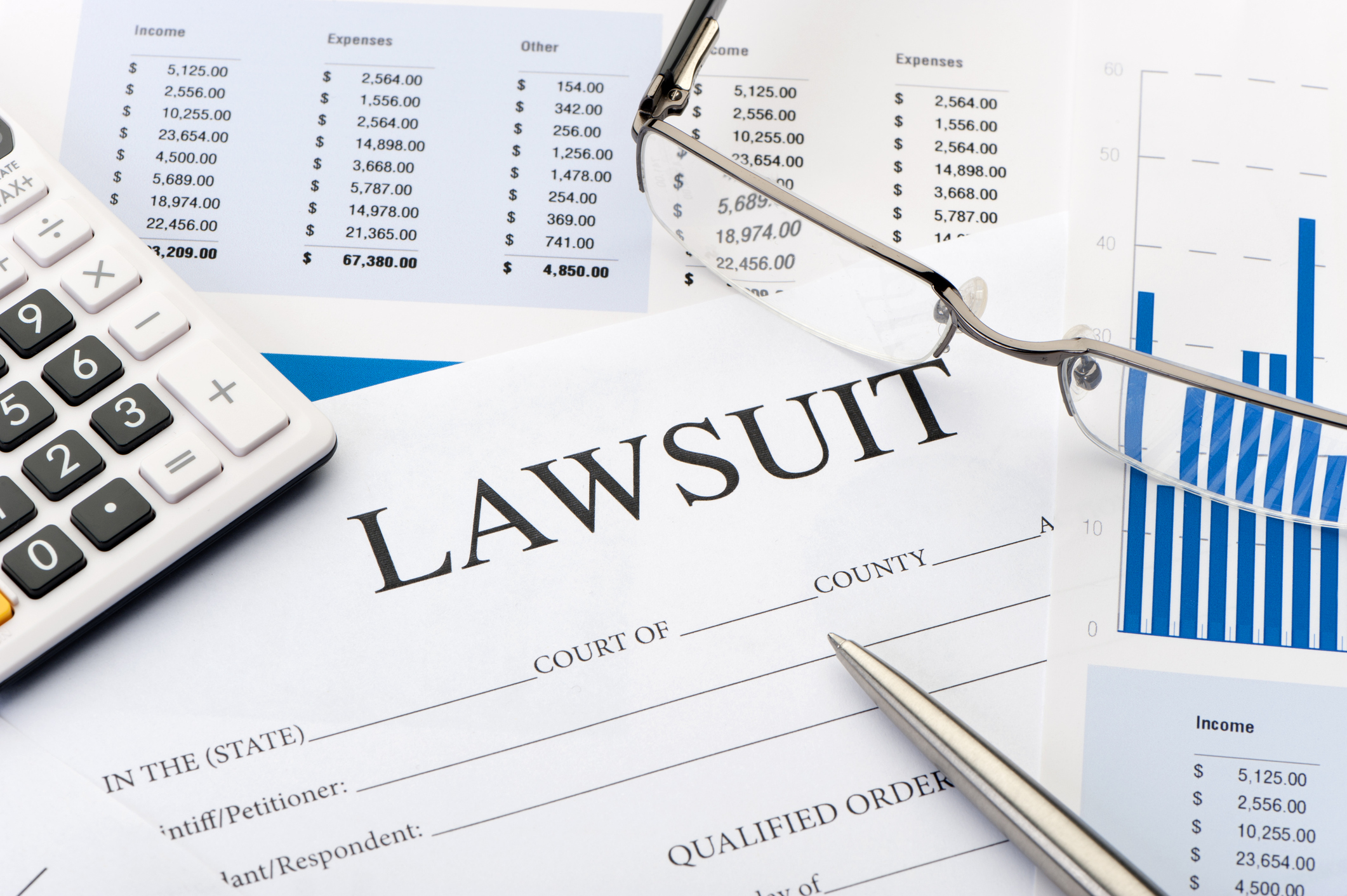
Suing a loved one or close friend after an accident is not an expression of blame or anger. It is simply a means by which to collect compensation for your injuries from that person’s insurance company.
Fortunately, New Jersey’s No-Fault Law means every vehicle owner is covered by their own insurance, to a certain extent. Often, however, that minimum coverage is not enough to cover medical bills and compensate for lost wages. Under such circumstances, it might be necessary to pursue legal action. Most cases don’t go to trial and, in the hands of an experienced attorney, don’t need to cause any stress to friends or family members involved in the accident.
Is it Wrong to Sue my Friend or Family Member?
When people think ‘lawsuit,’ they might imagine courtroom fights and expensive lawyers. That may be the image of the process painted by television, but the reality is almost always a calm pre-trial settlement and mutual relief that your medical expenses are paid for.
When it comes to personal injury, think of ‘suing’ as a synonym for ‘getting insurance companies to pay your expenses.’ Loved ones will never question your right to medical compensation. It’s their insurance who will fight to pay you the bare minimum. Your friends want you to do everything you can to secure compensation for your medical bills.
It is possible that your friend/family member’s policy will cover everything. Unfortunately, that is highly unlikely. Trying to avoid a suit by negotiating with the insurance company yourself doesn’t make things any easier on your friend. Only an expert attorney can take on insurance adjusters who want to give you as little money as possible.
A great lawyer will also make this process painless for you and your friend or loved one. In their hands, this process will not damage your relationship. The two of you will never have to negotiate with each other directly, or even discuss the case at all. The lawyers will do the talking on your behalf so you can focus on recovery.
What if My Loved One Wasn’t at Fault?
From your perspective as the passenger, it may initially appear that your friend was not at fault for the accident. Keep in mind that New Jersey uses a ‘comparative fault’ model to determine who pays what. If it is found later that your friend was partially at fault and you did not pursue a claim against him/her, you will not recover as much compensation as you could have.
It is a common mistake to rely on the other driver’s insurance to cover all costs. But that driver might not have insurance or might not be found guilty for the accident. If the passenger relies too heavily on the other driver’s insurance and later receives nothing, they might have missed the deadline to file a claim with other parties. That is why it’s important to pursue compensation immediately after an accident in order to ensure your medical bills are paid in a timely manner.
What if My Friend Crashed My Car?
Usually, the vehicle owner’s coverage will extend to anyone they allowed to drive their car. This is usually addressed within the policy’s ‘omnibus clause.’
If the vehicle owner was not present during the accident, they are rarely found to be at fault. However, there are some situations in which the vehicle owner could be liable for an accident — even if they weren’t in the car.
Negligent Entrustment
Someone could be accused of negligent entrustment if he/she loaned their car to someone they knew was unable to drive responsibly. This concept often comes up when someone allows a friend to take his/her car home after too many drinks.
In one case, a group of friends had been out socializing. One friend, Ronald, drove his friend Edward’s truck home because Edward was “buzzed” and known for driving recklessly. Once Ronald was home, however, he allowed Edward to drive two other friends home. One of them sued Ronald for allowing Edward to drive — even though the truck belonged to Edward. The court ultimately sided with the injured friend, based on the reasoning that Ronald negligently entrusted Edward’s vehicle back to him.
This accusation can also arise when a person lends their vehicle to:
- An unlicensed driver
- A driver with a history of recklessness
- An inexperienced driver
- Someone who had decreased visibility or reaction times due to medical conditions
Negligent Maintenance
If someone allows a friend to drive their poorly maintained car, they are sometimes liable for injuries that result from its poor condition. Such safety hazards can include:
- Malfunctioning exterior lights
- Worn out brake pads
- Hard or brittle tires
If the owner was aware of the vehicle’s dangerous condition, failed to mention that to a friend, and still allowed his or her friend to drive it, the owner will likely be liable for the resulting damages.
What if I Was a Passenger in My Friend’s Car During an Accident?
Injured passengers can claim coverage through their own automobile insurance policy, even if their vehicle wasn’t involved in the accident. But if the passenger doesn’t own a vehicle and therefore doesn’t have automobile insurance, they will have to turn elsewhere for compensation.
The victim can seek coverage from a resident relative who carries Personal Injury Protection, but they can only do so if they have no insurance of their own. Under the ‘Primacy of Coverage‘ rule, no one can be covered by multiple automobile insurance policies.
If the passenger has no insured resident relative, they will have to turn to one of the drivers’ policies. If the accident involved multiple vehicles, there is a chance a different driver was at fault, and could cover the injured passenger under their bodily liability insurance.
If it was a single-vehicle accident in which the friend crashed into a stationary object (like a tree or telephone pole), the driver is almost always at-fault. Hopefully the driver would have a bodily injury liability plan sufficient to pay for their friend’s injuries. If not, or if the driver’s insurance company refuses to pay, a lawsuit might be necessary to get compensated for things like medical bills and lost wages.
It’s important to keep in mind that while the friend’s name will be on the suit, the action is really being taken against the insurance company.
An experienced personal injury attorney can make this process as smooth as possible for the injured passenger and his/her friend who was driving.
What if I Was a Passenger in My Family Member’s Car During an Accident?
The same general rules apply for accidents involving friends and family members. The key difference is that a family member’s Personal Injury Protection will cover the passenger if they live together. This is also known as a “resident relative” relationship.
In one interesting case, a sister, Dawn, had borrowed her brother’s (Donald) car and allowed her friend to drive it. Dawn was riding as a passenger when her friend crashed Donald’s car. The friend didn’t own a vehicle of her own and therefore did not own auto insurance. So, who would pay Dawn’s medical bills?
All insurance parties involved had an argument for why they shouldn’t pay. In this case, the sister had to sue her brother and his insurance company to receive compensation. Ultimately, it was found that she was covered significantly under her brother’s policy. This came at no cost to her brother and surely the whole family was happy Dawn would be covered for her medical bills.

Case Study: $4.4 million
What makes this case unique: Unusual circumstance of the meeting, strong determination of the victim’s wife, strategic purchase of annuities provided the victim’s family far more than the initial settlement.
Frequently Asked Questions
The answer depends on the type of insurance. In New Jersey, there are two kinds: Standard and Basic. Basic includes a Limited Right to Sue and Standard comes with the option between Limited and Unlimited Right to Sue.
Under Limited Right to Sue, the policy holder agrees not to sue unless they’ve met the “serious injury” threshold. The following injuries meet the cut-off:
-Loss of body part
-Significant disfigurement or significant scarring
-Displaced fracture
-Loss of a fetus
-Permanent injury
-Death
Under Unlimited Limited Right to Sue, the policy holder can sue for pain and suffering for any injury at all.
If a passenger has exhausted all other options to receive compensation, they can take certain steps to file a lawsuit. They will most likely be filing a bodily injury claim. The New Jersey statute of limitations (time limit to file) on personal injury claims is two years.
The first step is to find a personal injury attorney. They will work with the friend or family member’s insurance adjusters to recover compensation for their client. Sometimes the process stops here. Other times, the lawyer and the insurance company will negotiate a settlement amount. This is the most common scenario, as insurance companies rarely want to pursue the long and expensive process of a trial.
If the case does move to trial, the court will use New Jersey’s comparative fault (also known as ‘comparative negligence’) model to determine who pays what. The simplest explanation is that the sum each driver pays corresponds to the degree to which they were at fault.
This article explains comparative fault in much greater detail. A personal injury attorney will help their client navigate the details of their specific case.
No, their automobile insurance has to pay their legal fees.
Who Do I Contact?
If you or someone you and a loved one have been involved in an accident, contact the attorneys at Rosenblum Law. Our experienced and skilled attorneys have won many cases with positive results. To speak directly to one of our attorneys call 888-235-9021 or email us today.


